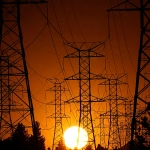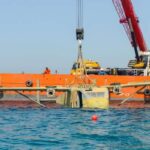Catalonia is holding a regional election on Sunday which is expected to have significant implications for Spanish politics. With over 5.7 million eligible voters, the election will test the strength of the separatist movement in the region as well as the popularity of Prime Minister Pedro Sánchez. The separatists have held power in the regional parliament for over a decade, but polling data suggests that support for secession has decreased since former regional president Carlos Puigdemont’s failed breakaway bid in 2017. Puigdemont, who fled the country after the failed attempt, is running in the election from France and hopes to return to Spain once a new regional president is chosen. However, he is under investigation for alleged terrorism offenses related to violent protests in 2019.
Prime Minister Pedro Sánchez is facing a tense election, as a poor showing for his Socialist party could be a significant blow. He has campaigned alongside Salvador Illa, the regional Catalan candidate for the Socialists. In the 2021 regional election, Illa won the most votes but was unable to prevent separatist Pere Aragonès from forming a government. Within the separatist movement, there are divisions between Puigdemont’s conservative Together party and Aragonès’s Republican Left of Catalonia. Additionally, a new far-right pro-secession party called Catalan Alliance will be vying for parliamentary representation in the election, focusing on issues such as unauthorized immigration and opposing the Spanish state. With a total of nine parties running, a coalition government is inevitable as no single party is expected to win enough seats for an absolute majority in the chamber.
The outcome of the Catalonia regional election is highly anticipated and will have important implications both regionally and nationally. The result will serve as a test of the strength of the separatist movement in Catalonia, which has held power in the regional parliament for over a decade. Polling data indicates a decrease in support for secession since the failed 2017 breakaway bid led by former regional president Carlos Puigdemont. Puigdemont, who fled the country after the failed attempt, is running in the election from France and hopes to return to Spain once a new regional president is chosen. However, he is currently under investigation for alleged terrorism offenses related to violent protests in 2019.
For Prime Minister Pedro Sánchez, the Catalonia regional election poses a significant challenge. A poor showing for his Socialist party could be a major setback for him. Sánchez has campaigned alongside Salvador Illa, the regional Catalan candidate for the Socialists. In the 2021 regional election, Illa won the most votes but was unable to prevent separatist Pere Aragonès from forming a government. Within the separatist movement, there are divisions between Puigdemont’s conservative Together party and Aragonès’s Republican Left of Catalonia. A new far-right pro-secession party called Catalan Alliance will also be competing in the election, focusing on issues such as unauthorized immigration and opposing the Spanish state. With nine parties running, a coalition government will likely be necessary as no single party is expected to win an absolute majority in the chamber.
The Catalonia regional election on Sunday is set to have far-reaching consequences for both the region and the rest of Spain. With over 5.7 million eligible voters, the election will be a key test of the separatist movement’s strength in the wealthy northeastern part of Spain. Former regional president Carlos Puigdemont’s failed breakaway bid in 2017 led to a decrease in support for secession, according to polling data. Puigdemont, who fled the country after the failed attempt, is currently running in the election from France and hopes to return to Spain once a new regional president is chosen. However, he is facing investigation for alleged terrorism offenses related to violent protests in 2019.
Prime Minister Pedro Sánchez is facing a crucial test in the Catalonia regional election. A poor showing for his Socialist party could have significant implications for his leadership. Sánchez has campaigned alongside Salvador Illa, the regional Catalan candidate for the Socialists. In the 2021 regional election, Illa received the most votes but was unable to prevent separatist Pere Aragonès from forming a government. Divisions within the separatist movement, between Puigdemont’s conservative Together party and Aragonès’s Republican Left of Catalonia, add complexity to the election. The presence of a new far-right pro-secession party called Catalan Alliance further complicates the political landscape. With nine parties running, a coalition government is likely as no single party is expected to win enough seats for an absolute majority in the chamber.








